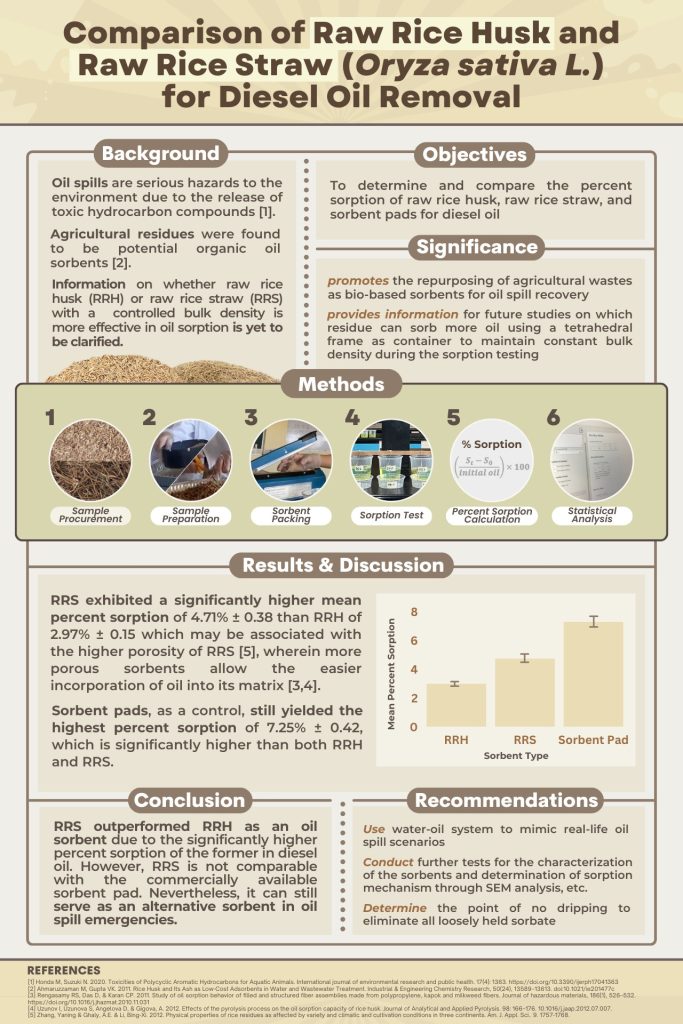Comparison of raw rice husk and raw rice straw (Oryza sativa L.) for diesel oil removal
HANNA ISABELLE R. CATALAN, DANIELLE FAYE A. DABUCON, CHARISSE NICOLE A. LEE, and JULNAFE B. LIBO-ON
Philippine Science High School Western Visayas Campus – Department of Science and Technology (DOST-PSHS WVC), Brgy. Bito-on, Jaro, Iloilo City 5000, Philippines
Abstract
Oil spillages result in detrimental environmental hazards, posing mutagenic and carcinogenic effects. Targeting oil removal and repurposing of agricultural wastes, this study aims to assess and compare the percent sorption of raw rice husk (RRH) and raw rice straw (RRS) for pure diesel oil. A tetrahedral framework in the packing of the sorbents was incorporated to control their bulk density. Results showed that RRH, RRS, and sorbent pad have mean percent sorption of 2.97%, 4.71%, and 7.25%, respectively. The significantly higher mean percent sorption of RRS than RRH can be linked to their porosity, surface roughness, and presence of functional groups and lignocellulosic components. Thus, RRS can better sorb diesel oil than RRH. Although it is not comparable with the commercially-used sorbent pad, the use of RRS is still recommended as an alternative sorbent for oil spill clean-up.
Keywords: rice husk, ice straw, sorption, diesel oil, oil spill


